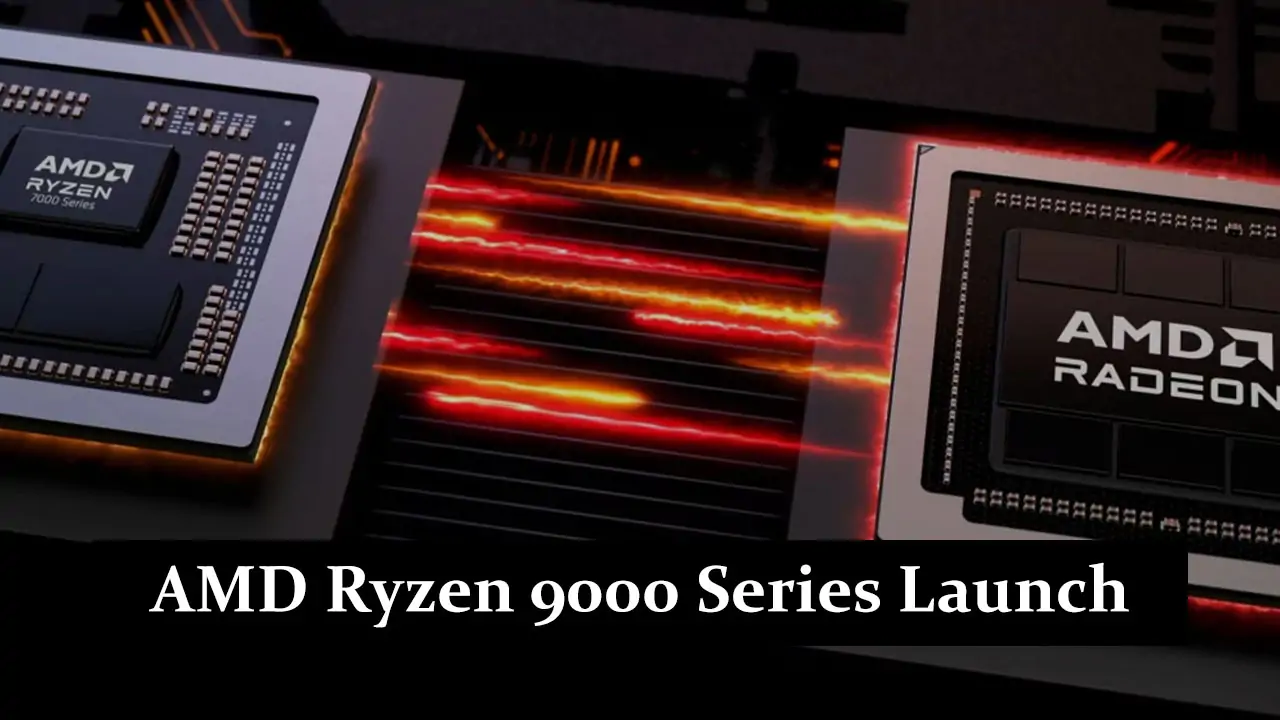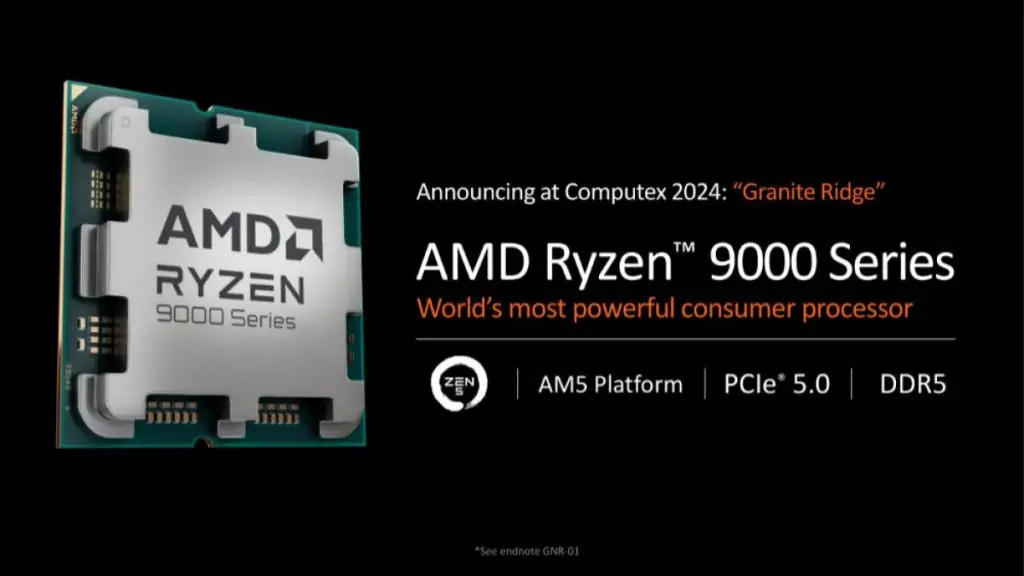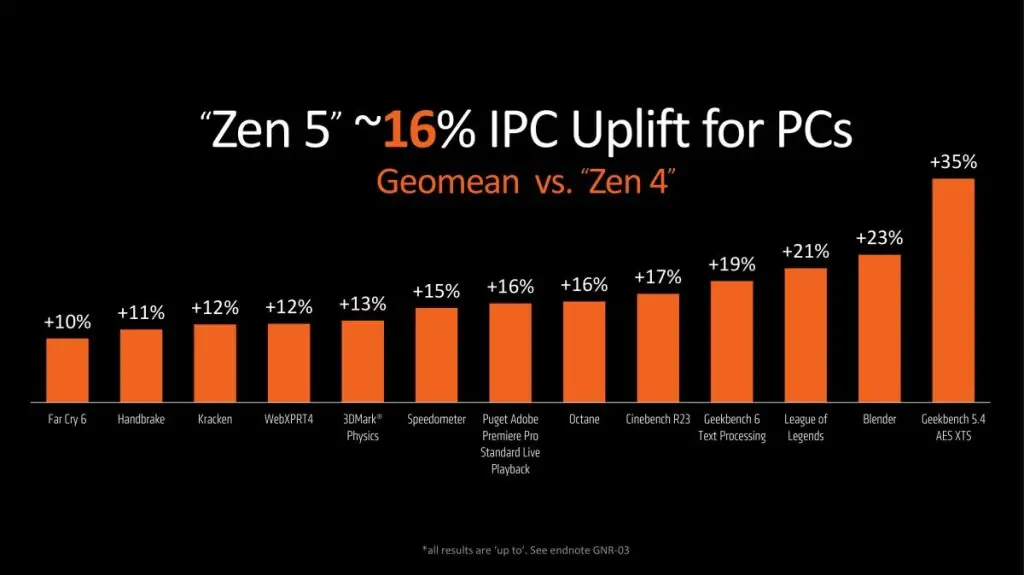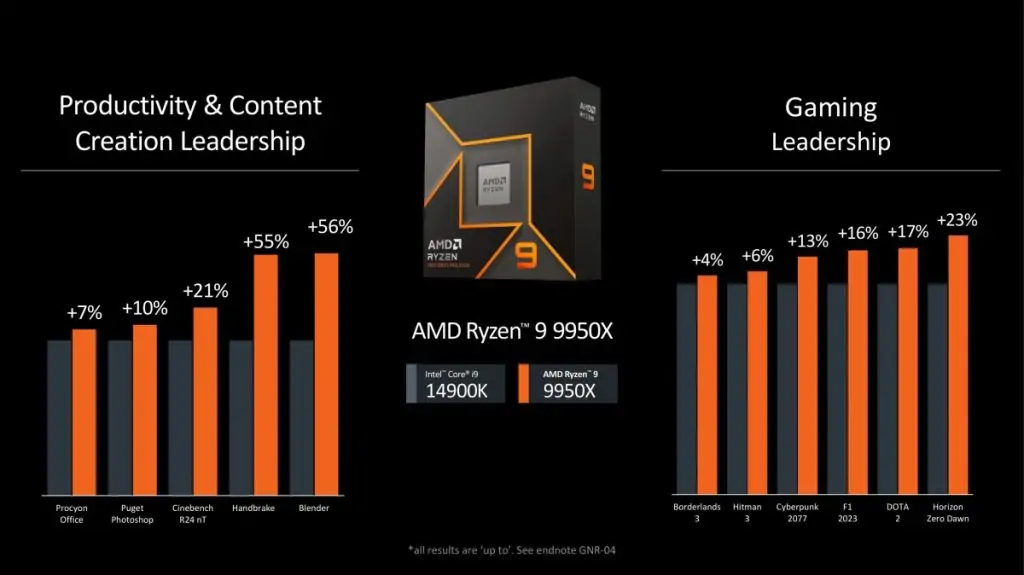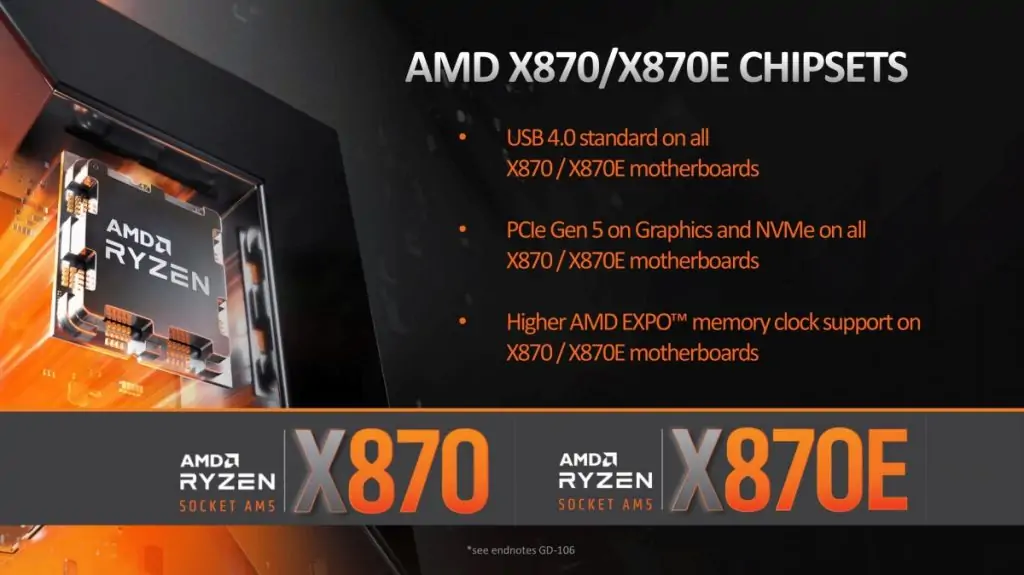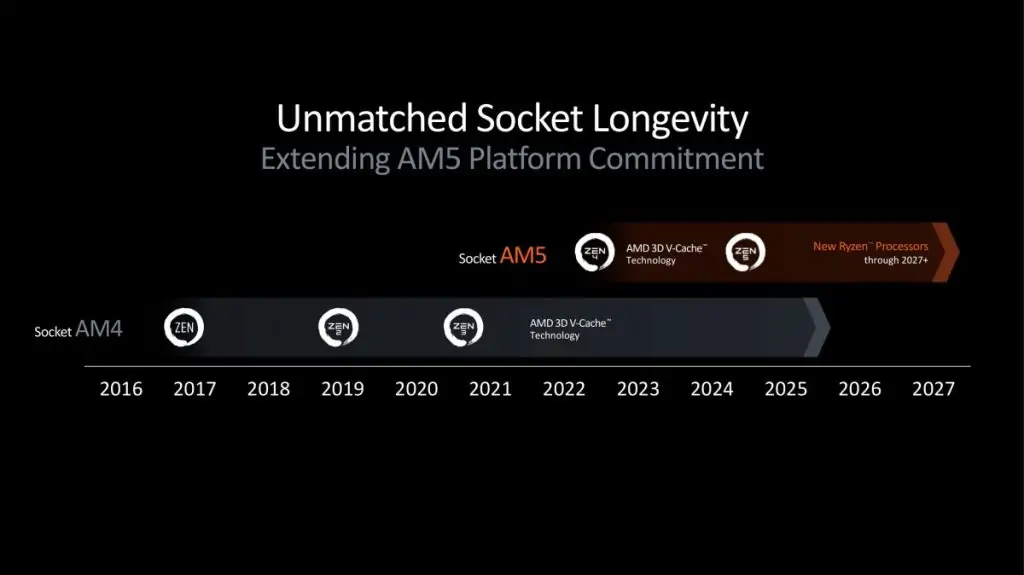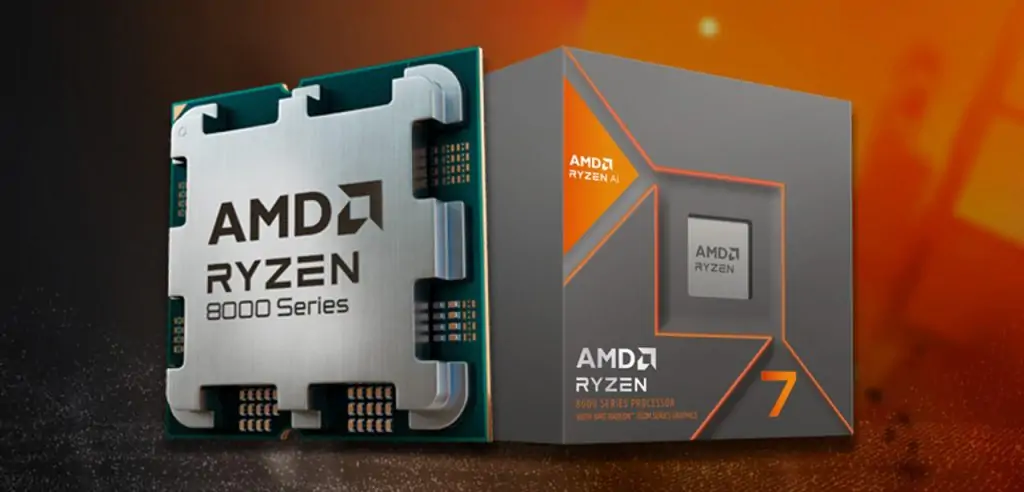AMD has made a significant splash at Computex 2024 by introducing its latest series of processors for desktop and mobile markets. These new chips, built on the company’s state-of-the-art CPU architecture, promise enhanced performance, efficiency, and a robust integration of AI capabilities.
Breaking from its current Ryzen 7000 lineup, AMD has jumped directly to the Ryzen 9000 series. These new desktop processors codenamed Granite Ridge, are based on the Zen 5 architecture and fabricated using TSMC’s advanced 4nm FinFET process. The new architecture boasts an impressive 16% improvement in instructions per clock (IPC) over its predecessor, Zen 4.
Key enhancements in the Zen 5 architecture include a refined branch predictor for better accuracy and latency, wider pipelines and vectors for increased throughput, and a larger instruction window for greater parallelism. Additionally, AMD has doubled the instructions bandwidth and boosted AI and AVX512 performance by switching to 512-bit wide SIMD for AVX512.
The Ryzen 9000 series maintains the same IO die and overall die layout as the Ryzen 7000, featuring one or two CCDs for CPU cores and an IO die for memory and IO operations. The IO die remains on TSMC’s 6nm process, and the integrated Radeon GPU continues with its 2 compute units.
AMD has introduced four new models in the Ryzen 9000 series: the 16-core Ryzen 9950X, 12-core Ryzen 9900X, 8-core Ryzen 9700X, and 6-core Ryzen 9600X. While the core counts mirror those of the previous generation, the new models feature higher boost clocks for the 8 and 6-core versions, lower base clocks across the board, and reduced TDP for three of the four models.
| Ryzen 9 9950X | Ryzen 9 7950X | Ryzen 9 9900X | Ryzen 9 7900X | Ryzen 7 9700X | Ryzen 7 7700X | Ryzen 5 9600X | Ryzen 5 7600X | |
|---|---|---|---|---|---|---|---|---|
| Core/Threads | 16/32 | 16/32 | 12/24 | 12/24 | 8/16 | 8/16 | 6/12 | 6/12 |
| Boost clocks | 5.7GHz | 5.7GHz | 5.6GHz | 5.6GHz | 5.5GHz | 5.4GHz | 5.4GHz | 5.3GHz |
| Base clocks | 4.3GHz | 4.5GHz | 4.4GHz | 4.7GHz | 3.8GHz | 4.5GHz | 3.9GHz | 4.7GHz |
| L2 cache | 16MB | 16MB | 12MB | 12MB | 8MB | 8MB | 6MB | 6MB |
| L3 cache | 64MB | 64MB | 64MB | 64MB | 32MB | 32MB | 32MB | 32MB |
| TDP | 170W | 170W | 120W | 170W | 65W | 105W | 65W | 105W |
Performance comparisons reveal a 16% IPC uplift over Zen 4. AMD claims that the flagship Ryzen 9950X outperforms Intel’s Core i9-14900K by up to 21% in Cinebench 2024 and up to 56% in Blender. Gaming performance improvements are more modest, with a claimed 23% boost in titles like Horizon Zero Dawn. However, as these are first-party results, they should be interpreted cautiously.
Accompanying the new processors, AMD has also unveiled the X870 and X870E chipsets for motherboards. These new boards feature mandatory USB 4.0 support and PCIe Gen 5 for both graphics and SSDs. AMD has also increased the EXPO memory overclocking speeds, with the base JEDEC spec now at 5600MHz, up from 5200MHz on the Ryzen 7000 series. The 800 series motherboards will support Ryzen 7000 chips, and existing 600 series boards will be compatible with Ryzen 9000 via a BIOS update.
In a commitment to longevity, AMD has extended support for its AM5 platform until 2027, ensuring compatibility with future CPU generations.
AMD is also extending its support for the older AM4 platform by launching two new models: the Ryzen 7 5800XT and the Ryzen 9 5900XT. The 5800XT is an overclocked version of the 5800X, while the 5900XT is a slightly downclocked version of the 5950X, offering a 16-core/32-thread configuration.
| Ryzen AI 9 HX 370 | Ryzen AI 9 365 | |
|---|---|---|
| Core/Threads | 12/24 | 10/20 |
| Core config | 4x Zen 5, 8x Zen 5c | 4x Zen 5, 6x Zen 5c |
| Boost clocks | 5.1GHz | 5GHz |
| Base clocks | 2GHz | 2GHz |
| L2 cache | 12MB | 10MB |
| L3 cache | 24MB | 24MB |
| Graphics | Radeon 890M | Radeon 890M |
| Graphics core | 16 | 12 |
| Default TDP | 28W | 28W |
| Configurable TDP | 15-54W | 15-54 |
AMD introduced the Ryzen AI 300 series for the notebook market, including the Ryzen AI 9 HX 370 and Ryzen AI 9 365. These new models offer up to 12 cores, combining Zen 5 and Zen 5C cores, new Radeon 890M graphics, and an NPU with 50 TOPs of performance. These processors will be featured in upcoming laptops from major manufacturers like Acer, ASUS, HP, Lenovo, and MSI, supporting Microsoft’s Copilot+ features.
The new Ryzen 9000 series desktop processors and the updated 5000 series parts will be available starting July 2024. AMD has not yet disclosed pricing for these new models. Stay tuned for further updates as AMD continues to push the boundaries of CPU performance and innovation.
